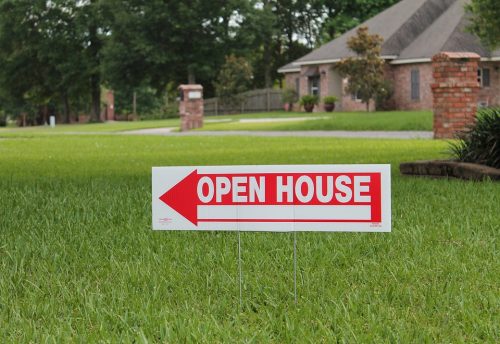Whether you are a newbie in the real estate industry or studying to be a realtor, learning all the key acronyms and vocabulary is a must. Here are some useful and common real estate abbreviations to remember:
Most Commonly Used Real Estate Abbreviations
Organizations
GNMA - Government National Mortgage Association
The GNMA (or commonly referred to as Ginnie Mae) is the government association that GUARANTEES loans to buyers, thereby assuring mortgage lenders that their mortgage payments are covered.
NAR - National Association of Realtors
The NAR is an organization of realtors and other professionals created to protect property rights and private ownership.
REIT - Real Estate Investment Trust
A REIT is a company that operates income-producing real estate properties, like malls, hotels, etc. REITs allow people to invest in a large-scale rental property and receive a share of the income produced by the property.
Payments, Mortgage, and Money-Related Matters
APR (Annual Percentage Rate)
The Annual Percentage Rate is a percentage interest payment that an individual must pay on a loan. This can cover any expense, from mortgages, car loans, and credit cards.

For example, if you take out a loan of $10,000 with an APR of 10%, you pay $1000 of interest for ten years.
ARM (Adjustable Rate Mortgage)
An Adjustable Rate Mortgage refers to a mortgage on a property that changes over time. It starts as a fixed rate for a while and resets after that.
EMC (Earnest Money Contract)
The Earnest Money Contract is the legal paperwork and monetary exchange used between a buyer and seller to show that the buyer is serious about buying property.
This is to ensure smooth real estate transactions.
FMV (Fair Market Value)
FMV refers to the fairest price that a property will be put up for on the market. This is usually agreed upon by the buyer and seller beforehand.

GRM (Gross Rent Multiplier)
Gross Rent Multiplier is the estimated property price divided by its gross rental income.
For example, if you buy a property worth $400,000, including five units worth $1800 each. To get the annual gross rent income: 1800 x 5 x 12 months = $108,000
To get the GRM: 400,000/108,000 ≈ 3.7 GRM
LTV (Loan-to-Value)
An LTV is a ratio between the loan amount and the actual value of a property. The lower the LTV, the less risk there is when a lender approves a mortgage.

For example, if you plan to buy a house worth $150,000 and ask for a loan of $75,000, then your LTV is (75,000/150,000) = 0.5 or 50%
NOI (Net Operating Income)
NOI refers to the revenue and profitability of an income-generating property.
This can be computed by taking all income minus operating expenses. It helps real estate investors determine a property’s profitability.
SUB2 (Subject-To)
A SUB2 or Subject To deal refers to the existing financing of a homeowner is taken over by the investor. This means that the investor of the property now controls it and takes over the mortgage payment.
Others
CRE (Commercial Real Estate)
Commercial Real Estate refers to real estate used for businesses like offices instead of private ownership like housing or residentials.

CMA (Comparative Market Analysis)
A CMA is used to differentiate between one piece of property and similar properties in the surrounding area.
A property owner could use this to help the buyer make their decision about which property to buy.
CRS (Certified Residential Specialist)
The CRS is the highest credential for a residential real estate agent or broker. This can be attained through professional accomplishments in the real estate field.
MLS (Multiple Listing Service)
An MLS is a database where real estate agents and brokers look through the information about certain properties up for sale.

This is where they can look at prices, availability, and so on.
O/F (Owner Finance)
Owner Financing refers to when a seller finances a buyer’s purchase of a property, whether as a whole or in parts.
REO (Real Estate Owned)
An REO refers to a property that has undergone foreclosure when a buyer fails to make the due payments.
REO properties are now owned by mortgage lenders or property managers and must be resold.
SFH (Single Family Home)
The house that you are probably in right now must be an SFH.

This refers to a single building on a single plot of land that shares no walls with other buildings or houses.
Housing-Related Abbreviations
Now that we’ve gotten a lot of big words out of the way, here are some easier abbreviations to remember when you buy your first house:
- 1C/2C - 1-car or 2-car garage
- 2/1 - 2 bedrooms, one bathroom
- 4/3 - 4 bedrooms, three bathrooms
- A/C - Airconditioning
- ARV - After-Repair value
- BA - Bath
- BD - Bedroom
- BKYD - Backyard
- Dr - Dining room
- EIK – Eat-in kitchen
- ELE – Electric
- FFBR - First-Floor bedroom
- FRBO - For Rent By Owner
- FSBO - For Sale By Owner
- GAR - Garage
- HW – Hot Water
- LR - Living room
- Mstr - Master bedroom
- OFC - Office/study
- REF - Refrigerator
- TRSH - Trash pickup
- WTR - Water
Conclusion
There’s even more than this, according to our real estate experts. Once you learn all the vocabulary, working in the industry will be a breeze.
Also read:






